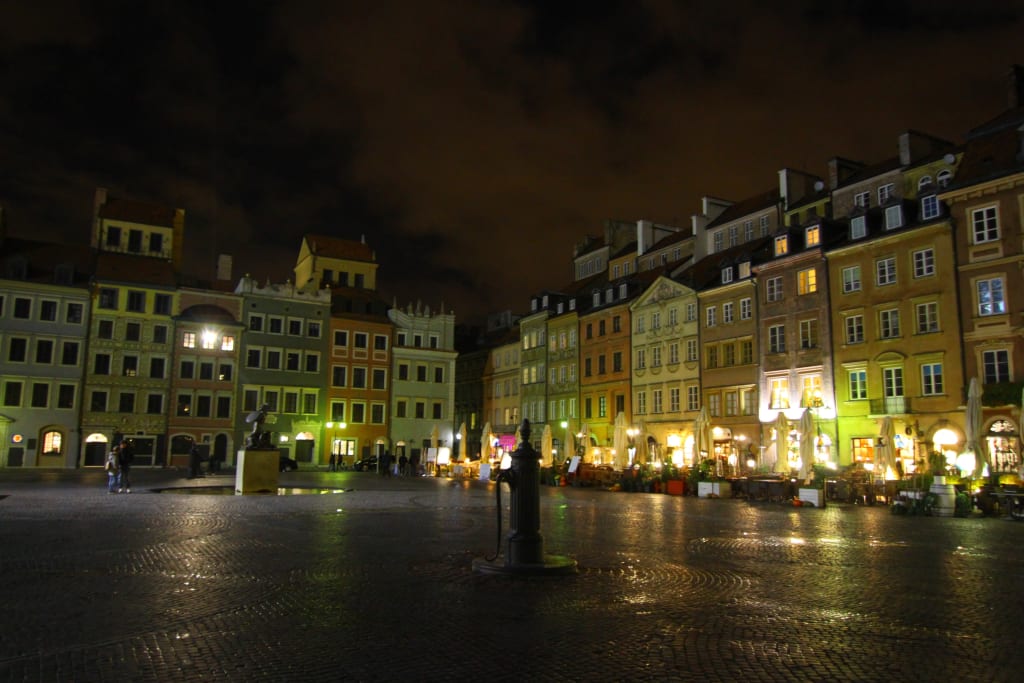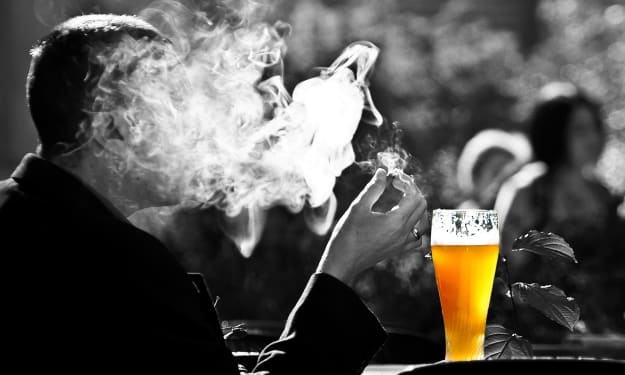The Warsaw Dichotomy
Beauty and Horror in the Polish Capital

Is the pianist good? I wouldn’t know. Every driver seems skilled to someone who’s never been behind the wheel. I love music, but there’s not one atom of musical talent in my body. I can only look with awe at those who know how to make an instrument sing.
It’s a tourist trap, I know that much. The concerts we go to, in Venice and Vienna and now in Warsaw (Ws are pronounced as Vs in Polish, so the alliteration stands) are aimed at people like us, who wouldn’t know a good musician from a bad one. Like those restaurants that have menus in seven different languages, it’s a bad sign.
But the music’s still beautiful. Any competent player could make these works shine, and in the small room, the grand piano makes the air hum. You can feel the bass notes in the soles of your feet. Some of the tiny audience try to record the musician on their phones. But that’s missing the point. Recorded, these notes are just sounds, one after another. A phone camera won’t capture the candlelight. Or the audience’s reverential hush. Or the moon outside, showing its pinched face through the tattered clouds. Chopin won’t be the same on your laptop’s crappy speakers, via some YouTube playlist. The experience is part of the magic.
We arrived at the concert straight from the Warsaw Uprising Museum. Two hours of horrific history, telling the story of brave, doomed men and women battling the Nazi war machine in the shattered remnants of their homes. Stepping from that to this, shivering slightly as you shed your jacket in the warm lobby. The cobbled streets shining with rain, and the warm air and soft light, and music.
The museum has a basement. There’s a tiny room, half-hidden in the gloom by a black rubber curtain that hands in whispering strips. Inside, there’s a TV screen. On that TV, there’s an old man speaking horrors.
His apartment looks like every old person’s apartment. The heavy wood furniture, the bright brass pendulum of a ticking clock in the background. And the man looks like any old man, with his wool sweater and black-framed glasses provided by socialized healthcare. But this man is not your grandfather. He was a German soldier who served in Warsaw during the Nazi occupation. He saw first-hand the actions of the infamous Dirlewanger brigade, the SS penal company made up of murderers and rapists and monsters that represented the worst elements of German society. The stories he tells are appalling. At one point in the eternally looping video, the man wonders aloud, “I don’t know if I should be telling you this.” He should, and he does. But it’s hard to hear.
And then an hour later, soft light and piano music and the applause of a civilized audience of tourists from across Europe. Sitting close to the stage, I can watch the piano’s mechanism move as though breathing under the pianist’s precise fingers. I can watch this machine sing, drawing out all our deepest, noblest, most tender emotions note by note.
Men make machines that can heal and kill. We all know this. The observation has been made many times. Our species throws out a Stalin with one hand and a Mandela with the other, for us to condemn and laud and align ourselves with one against the other. It’s easy, when nothing’s at stake. But in every heart that swells to the piano’s rippling magic there lurks a vile Dirlewanger, waiting for a war to come.
It gets worse.
The last concert we attended was in Venice, in the Palazzo delle Prigioni, the palace of prisons. Vivaldi’s Four Seasons and some Mozart. Popular classics for non-connoisseurs. It was all string music that made no use of the piano that lay covered in a corner of the stone-walled room. But that piano was donated to Venice by Hitler himself, as a sign of friendship between two Fascist states. The Nazis were barbarous, but they weren’t barbarians. They admired the art they merrily looted from the people they subjugated, and adoration of Wagner was almost a religion for Hitler’s court. As the Austrian Jewish writer Joseph Roth put it, “the Germans have always had the gift of killing to music.” It was cultured, civilized, educated people who obliterated Warsaw and brought all Europe to ruin. And the same soul that could appreciate all that was noble and elevating in the music of Wagner could order the destruction of entire nations over lunch. The most horrifying thing about monsters is that they aren’t really monsters at all. They’re people, like me. Like you.
But music can be like a guided meditation sometimes, turning one’s thoughts in directions they wouldn’t normally go. This tunnel looks the same from either end. Murderers love music. Music moves murderers. Warsaw, reduced to rubble by retreating German forces in an act of staggering vindictiveness, has been rebuilt. The Old Town, the Stare Miasto, is as charming as any in Europe. They’re still playing Chopin, night after night, right where the barricades stood in 1944. And if the worn cobbles of the streets still remember the blood that once washed over them, they must also remember the nights like this, with a candle in the window and music in the moon-bright air. Pain can last a lifetime, or more, echoing like a curse down through the generations.
But beauty is forever.
About the Creator
Ryan Frawley
Towers, Temples, Palaces: Essays From Europe out now!
Novelist, entomologist and cat owner. Ryan Frawley is the author of many articles and stories and one novel, Scar, available from online bookstores everywhere.






Comments
There are no comments for this story
Be the first to respond and start the conversation.